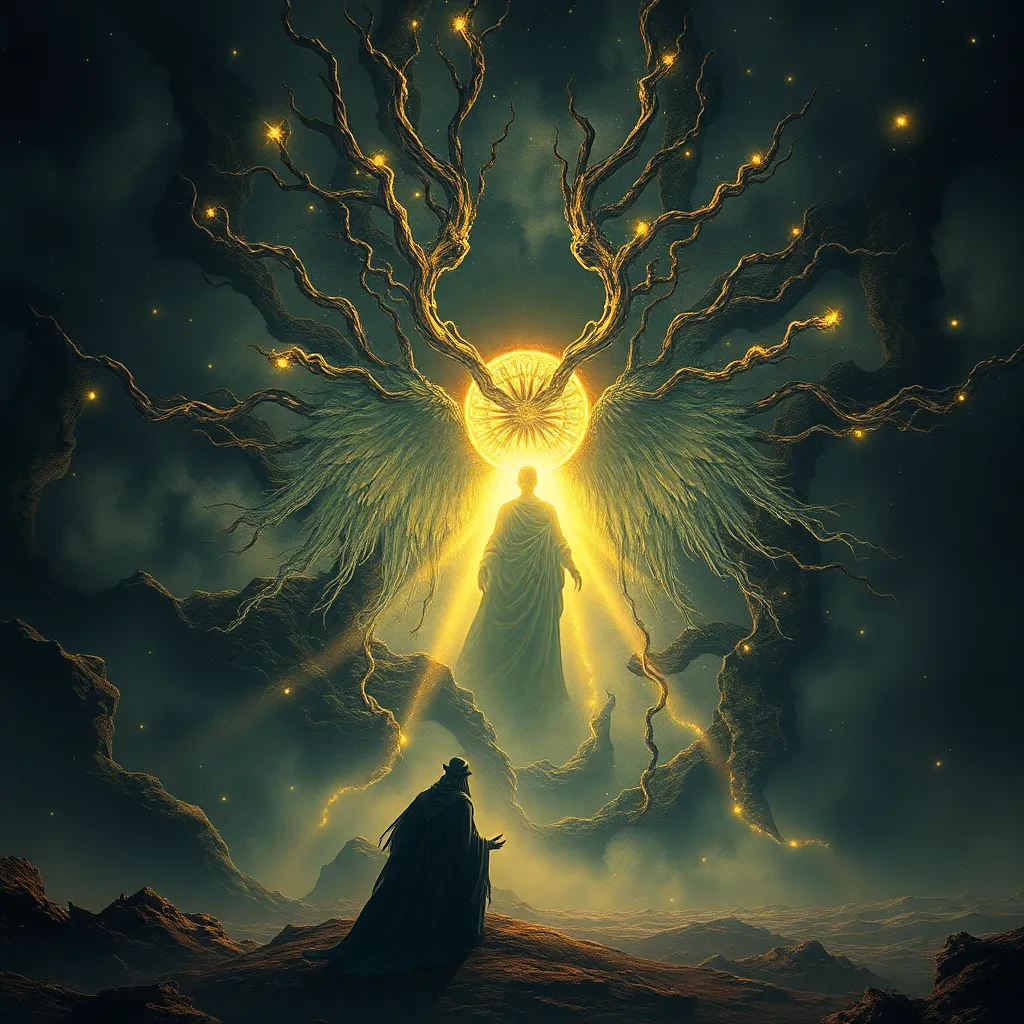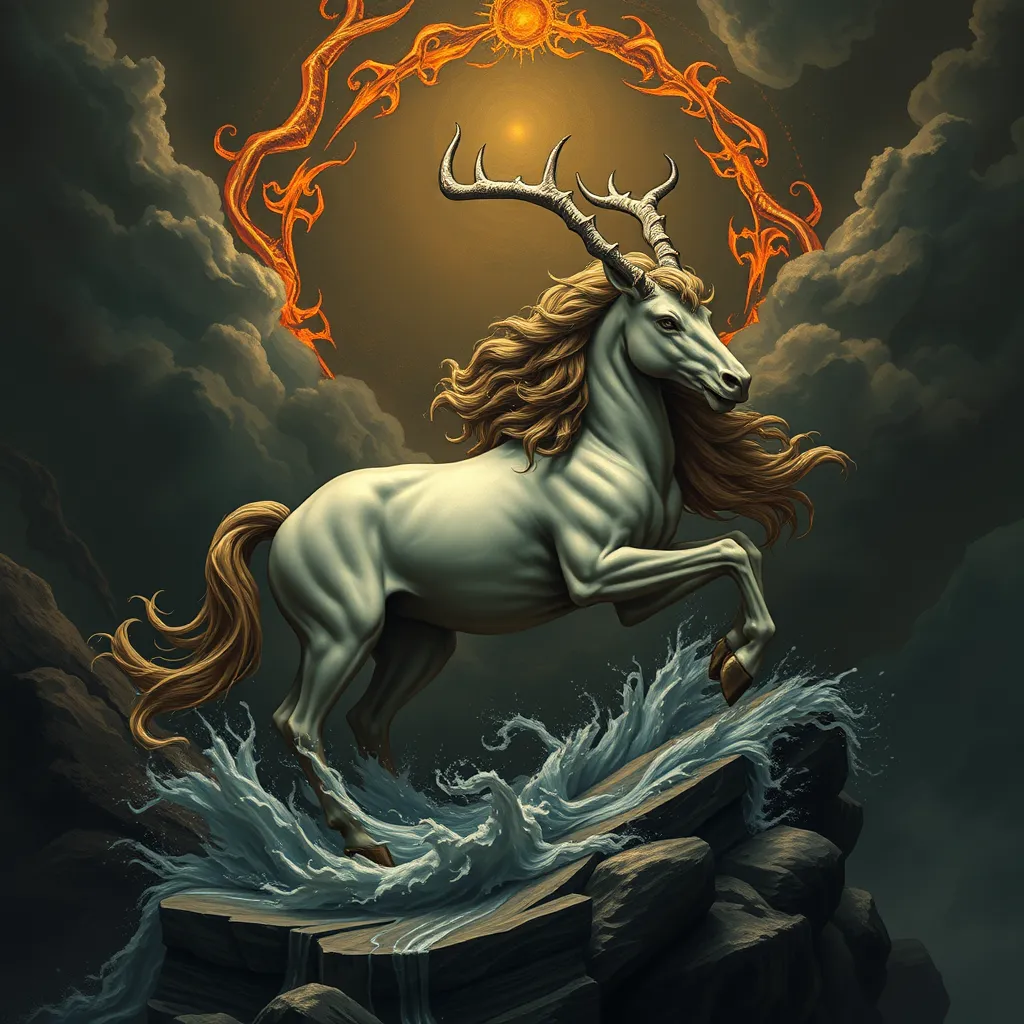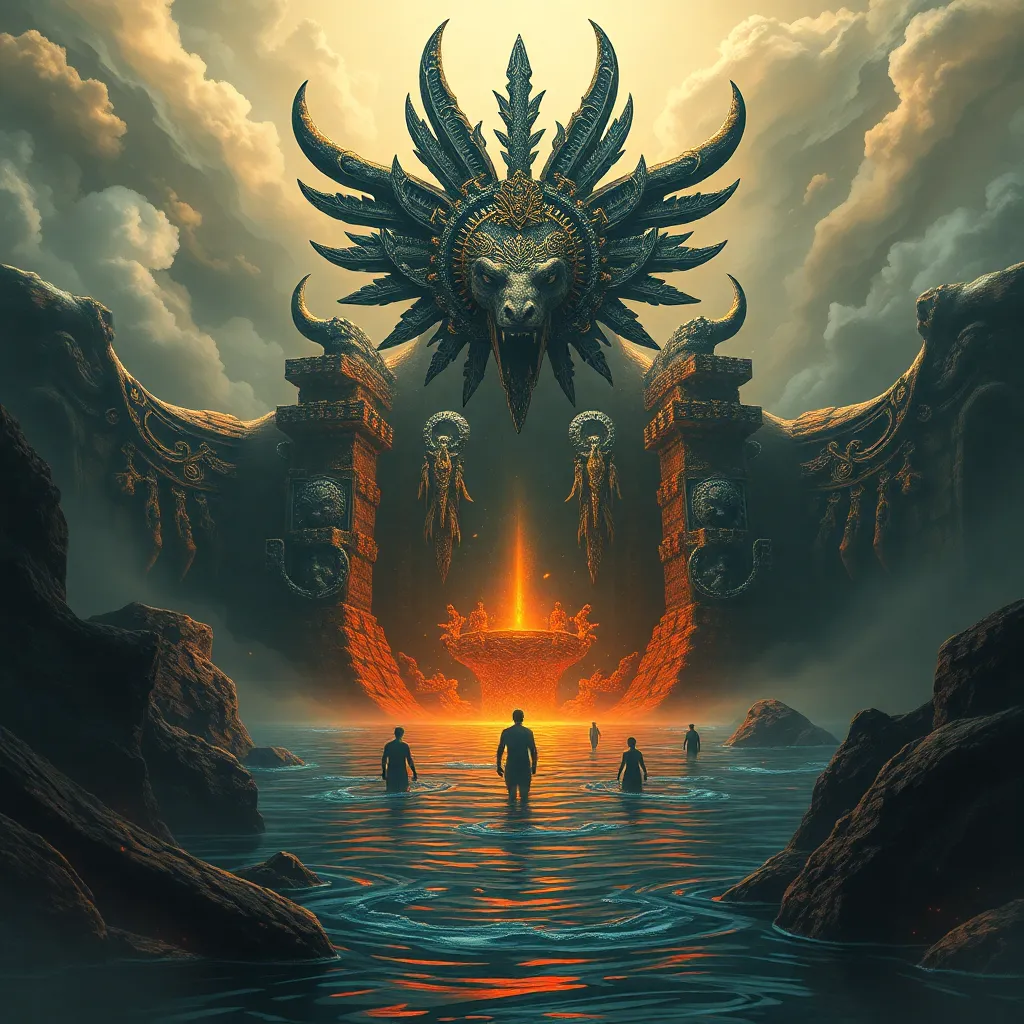The Dybbuk in Asian Mythology: Exploring the Spirit World in Eastern Cultures
I. Introduction
The Dybbuk is a concept derived from Jewish folklore, representing the malicious spirit of a deceased person that possesses the living. Its origins can be traced back to Eastern European Jewish mysticism, particularly within the Kabbalistic tradition. The term itself means “to cling” in Hebrew, highlighting the Dybbuk’s nature of attaching itself to a living host.
In many Asian cultures, beliefs in spirits and the afterlife play a crucial role in societal norms and individual behaviors. From the reverence of ancestors to the fear of malevolent spirits, the spirit world is woven into the very fabric of daily life. This article aims to explore the Dybbuk, drawing parallels with the spirit beliefs found in various Eastern cultures and examining its significance in modern society.
II. The Dybbuk: Origins and Characteristics
The Dybbuk’s historical context is rich with mystical interpretations. In Jewish folklore, it is depicted as a restless soul that has not found peace due to unresolved issues from its life. The Dybbuk often seeks to fulfill its desires through the body of a living person, leading to various symptoms of possession.
When comparing the Dybbuk to similar entities in Asian mythologies, several parallels can be drawn. For instance, many cultures feature spirits that linger due to unfulfilled desires or emotional attachments. The following attributes characterize a Dybbuk:
- Possession: The Dybbuk can take control of a living person, leading to erratic behavior and emotional distress.
- Communication: The spirit may communicate its needs or desires through the host, often revealing personal insights or secrets.
- Exorcism: Rituals and ceremonies are often performed to expel the Dybbuk from the host, restoring harmony.
III. The Concept of Spirits in Asian Mythology
In Eastern cultures, the concept of spirits is deeply rooted in everyday life. Common themes include:
- Respect for Ancestors: Many Asian traditions emphasize the importance of honoring deceased family members.
- Spiritual Realms: It is often believed that spirits reside in various realms, influencing the living.
- Cultural Rituals: Regular practices are conducted to appease spirits and ensure their favor.
Various spirit entities can be found throughout different Asian traditions, such as:
- Yūrei: In Japanese folklore, these are spirits of the dead who have not found peace.
- Guǐ: In Chinese culture, these are restless spirits that may cause mischief or harm.
- Preta: In Hindu and Buddhist beliefs, these are spirits of the deceased who suffer from insatiable hunger.
Moreover, spirits in Asian mythology are often categorized as either benevolent or malevolent. Benevolent spirits are revered and worshipped, while malevolent spirits invoke fear and require propitiation to avoid their wrath.
IV. The Dybbuk’s Parallels in Asian Folklore
When examining the Dybbuk, several parallels emerge with Asian folklore. The Japanese Yūrei, for instance, shares characteristics with the Dybbuk in terms of possession and unfinished business. Both spirits are often depicted as seeking resolution for their past lives.
Similarly, the Chinese Guǐ represents a spirit that may cause trouble for the living, much like the Dybbuk. Both entities evoke a sense of fear and caution, prompting rituals to appease them.
In Southeast Asian cultures, spirits such as the Pontianak and Roh exhibit behaviors reminiscent of the Dybbuk, reflecting themes of possession and vengeance. These spirits are often tied to specific cultural narratives that explain their existence and behavior.
V. The Role of the Spirit World in Eastern Cultures
The spirit world occupies a significant place in Eastern cultures, influencing various aspects of life:
- Spiritual Practices: Rituals such as offerings, prayers, and festivals are performed to honor spirits and seek their blessings.
- Ancestor Worship: Many cultures practice ancestor worship, believing that the spirits of ancestors can influence the living.
- Cultural Practices: The presence of spirits often dictates social customs, such as avoiding certain activities during specific lunar phases.
VI. Case Studies: Dybbuk-Like Phenomena in Asian Stories
Numerous folklore and legends feature spirit possession, akin to the Dybbuk. For instance, in Japanese culture, stories of Yūrei possessing the living are common, often tied to themes of love and betrayal.
Contemporary tales, such as those depicted in horror films, illustrate society’s fears surrounding possession. These narratives highlight how the concept of spirits continues to resonate within modern contexts.
The implications of these stories reveal deeper societal beliefs and fears, often reflecting unresolved issues in personal and communal contexts.
VII. The Dybbuk in Modern Interpretations
The Dybbuk has significantly influenced literature, film, and popular media, particularly in Asian contexts. From horror films to literary explorations, the Dybbuk symbolizes unresolved issues and emotional conflicts.
As societal perceptions evolve, the understanding of spirits has shifted, leading to new interpretations of these ancient beliefs. The Dybbuk serves as a reminder of the complexities of human emotions and relationships, demonstrating how cultural narratives adapt over time.
VIII. Conclusion
In summary, the Dybbuk represents a fascinating intersection between Jewish folklore and the broader spirit beliefs in Asian cultures. Its characteristics resonate with various entities in Eastern mythologies, revealing common themes of possession, unresolved issues, and the quest for peace.
The enduring fascination with spirit mythology in Asian cultures showcases the importance of these beliefs in understanding human nature and societal norms. As we navigate contemporary life, the relevance of these ancient stories continues to provide insights into our emotional and spiritual landscapes.




